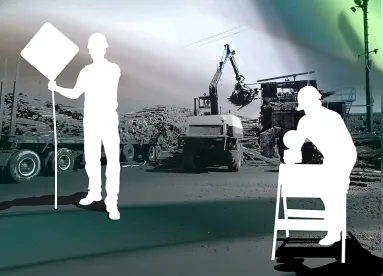As the coronavirus spreads around the world, its impact on many businesses and industries, including the construction industry, is increasing.
The construction industry in the United States relies heavily on foreign suppliers and manufacturers of goods for construction materials, including steel, millwork, electrical and lighting equipment, plumbing fittings and fixtures, flooring tiles, and HVAC equipment. With many companies closed due to quarantines, production lines have stopped, shipping containers remain in their ports, and there is no transportation of goods from these affected areas to the United States. In the coming months, contractors may have to find alternate, and likely more expensive, sources of goods and materials which could lead to project cost overruns. These supply chain issues are also likely to cause project delays which could lead to potential claims by owners for the delay, including liquidated damages claims.
Who bears the risk and the loss for resulting construction delays or increased construction costs due to the coronavirus?
This will likely be determined by the controlling written contract and, in particular, whether the outbreak constitutes an excusable delay under the contract’s force majeure clause extending the completion date, excusing the contractor for liability for any damages and providing for additional costs.
What is a force majeure clause?
Force majeure is an event or effect that can be neither anticipated nor controlled. A force majeure clause in a contract may excuse the contractor for delays caused by extraordinary events that a contractor cannot foresee or control, such as fires, earthquakes, and, depending on what your contract says, a pandemic. Past disease outbreaks, such as the 2002 SARS epidemic, have qualified as a force majeure event in certain cases.
Force majeure clauses in construction contracts may justify an extension of time to perform under the contract and/or financial compensation for costs like overhead or remobilization associated with delays. A force majeure clause may also help you defeat an owner’s claim for liquidated damages for delay.
What should you do now if your construction project may be impacted by the coronavirus?
-
Document any impact that the coronavirus is having on the project.
-
Review your contract with counsel to determine if it has a force majeure clause and, if one exists, confirm (a) the exact language of the clause, (b) any notice provisions to invoke the clause, (c) any requirement for evidence or documentation regarding the impact on the project, and (d) any terms governing obligations you have to mitigate the damages or delays as a result of the force majeure.
This is not the first time disease outbreaks have disrupted businesses and likely will not be the last. To guard against these uncertainties and protect your business, make sure there is a force majeure clause in your contract, and pay close attention to what that clause says before signing any contract- make sure it includes epidemics or pandemics as force majeure events.



 />i
/>i

